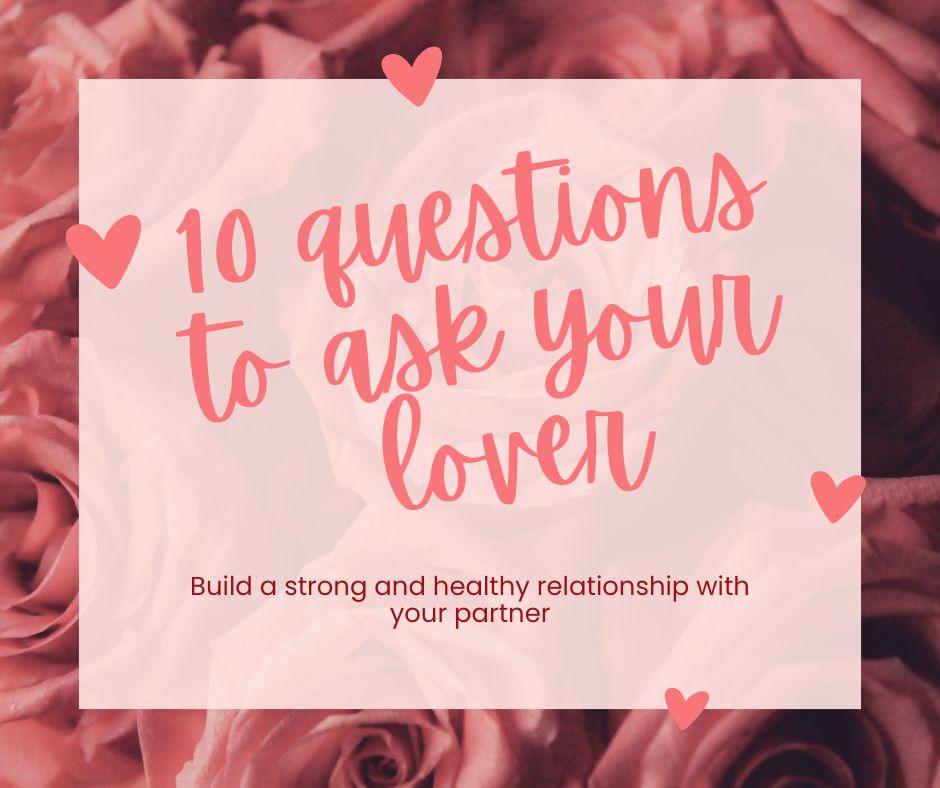When it comes to building a strong and healthy relationship with your partner, communication is key. Asking questions is an effective way to get to know your lover better, understand their perspective on important issues, and deepen your emotional connection. So what are the 10 best questions to ask your lover, and take your relationship deeper?
- What are your dreams and aspirations? One of the most important questions to ask your partner is about their dreams and aspirations. This question can help you understand what your lover values in life, what motivates them, and where they see themselves in the future. Sharing your dreams and aspirations with your partner can also create a deeper sense of intimacy and connection. And remember, a lack of dreams and aspirations is not to be diminished but should be treated as just as significant as many – in this area we start to get into the area of personality types, where its a part of some people’s character traits to appear to be purposeless and without energy. You just have to look beyond appearances, because there WILL be strong driving forces in their lives that they just aren’t aware of.
- What are your core values? Knowing your partner’s core values is essential for building a strong relationship. Core values are the guiding principles that shape a person’s behavior and beliefs. When you know your partner’s core values, you can better understand what motivates them, what they prioritize, and what they stand for.
- What is your love language? Everyone expresses love differently, and it’s essential to understand how your partner feels loved. The concept of “love languages” is popularized by Gary Chapman in his book “The 5 Love Languages.” The five love languages are words of affirmation, acts of service, receiving gifts, quality time, and physical touch. Understanding your partner’s love language can help you communicate your love in a way that resonates with them.
- What are your pet peeves? Knowing your partner’s pet peeves can help you avoid behaviors that annoy or upset them. Pet peeves are small irritations that can build up over time and lead to conflict. By addressing pet peeves early on, you can prevent resentment from building up.
- What are your biggest fears? Sharing your fears with your partner can create a deeper sense of emotional intimacy and vulnerability. It can also help you understand your partner’s behavior and motivations. By knowing your partner’s fears, you can better support them and avoid behaviors that trigger anxiety or stress. For example, it’s handy to know the old ‘bury-em-alive’ prank might be a bridge too far for the health of your ongoing relationship.
- What are your favorite memories? Asking your partner about their favorite memories can help you understand what moments are most important to them. It can also provide an opportunity to relive happy memories together and strengthen your emotional bond.
- What are your communication preferences? Everyone communicates differently, and understanding your partner’s communication preferences can help you avoid misunderstandings and conflict. Some people prefer to communicate verbally, while others prefer to write their thoughts down. Some people prefer to talk things out immediately, while others need time to process their emotions before discussing an issue.
- What are your career goals? Understanding your partner’s career goals can help you support them in achieving their aspirations. It can also provide an opportunity to discuss how your careers intersect and how you can support each other in achieving success.
- What is your favorite way to spend free time? Understanding how your partner likes to spend their free time can help you plan activities that you both enjoy. It can also provide an opportunity to learn about new hobbies and interests that you may share.
- What is your idea of a perfect relationship? Asking your partner about their ideal relationship can help you understand what they expect from a partner. It can also provide an opportunity to discuss your own expectations and work together to build a relationship that meets both of your needs.

